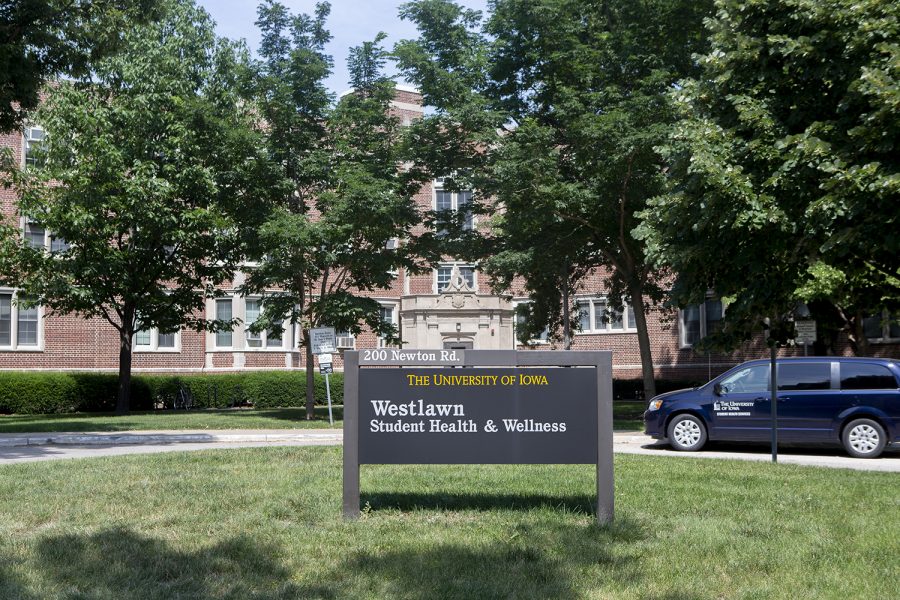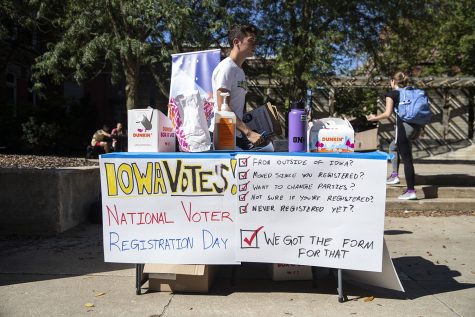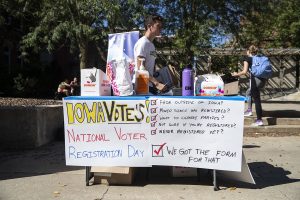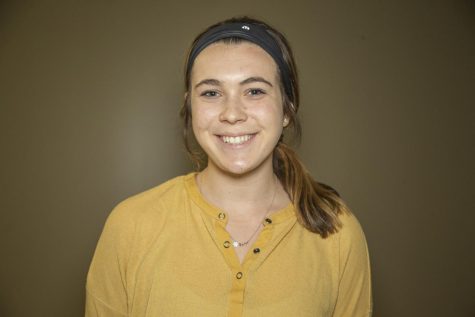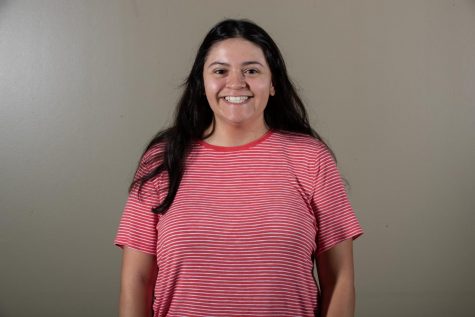Student Health marks its centennial, a look back at the past 100 years
University of Iowa Student Health Services is celebrating 100 years of on Tuesday. With its start in 1919, Student Health has provided all kinds of care to students from vaccinations to drug counseling and so much more. Here is a look back at the past 100 years.
on Monday, July 8, 2019.
October 8, 2019
Student Health is celebrating 100 years of providing comprehensive health services to millions of Hawkeyes.
An influenza pandemic in 1918 hit the nation — especially the younger generation — hard, University of Iowa Student Health interim Director Paul Natvig said in a comprehensive report on the organization’s history.
“Younger people were not previously exposed [to influenza], so [the students] had no immunity,” Natvig said.
Then-UI President Walter Jessup convened a board meeting in efforts to address health across campus, and in response, Student Health was formed to combat the ongoing epidemic in the fall of 1919.
“Back then, there was a fifty-cent charge for [prescription] calls and a $1 charge for house calls to dorms or student residences,” Natvig said.
RELATED: Student Health and Wellness splits up
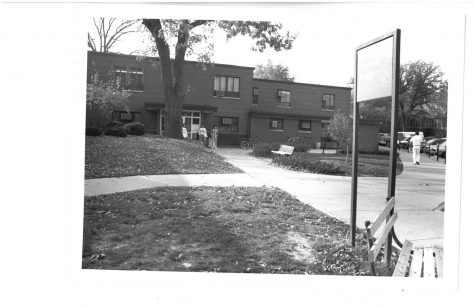
Natvig added that all patient care is outpatient now, so students are not admitted for more than a day. Student Health recently transferred into electronic filing as well, he said, instead of the previous paper charts that were used for patient records until 2005.
Although many of the advancements in Student Health over the last century are mechanical and technology-based, Natvig said, there have been policy-based changes, too. In 1930, Student Health required that all male students receive physical exams. In 1934, Student Health’s first female doctor and director Grace Williams mandated this policy for all female students as well.
During the 1940s, around the height of World War II, the World Health Organization required that Student Health administer yellow fever and polio vaccinations, Natvig said. Because of the potential contagion of these diseases, Student Health administered the vaccines not only to university students, but also to areas in Missouri, Nebraska, Illinois, Wisconsin, Minnesota, and South Dakota.
As the number of services within Student Health increased, the organization realized it required more space to treat university students, Natvig said. Student Health expanded in 1969 with additional storage rooms, two new waiting rooms, 18 offices, and multiple treatment rooms.
RELATED: Flu shot returns to UI Student Health
The organization received a grant in 1988 for drug prevention, which led to the hiring of a drug counselor and new programs that raised awareness of drug usage, sexual awareness, and cardiovascular-health education.
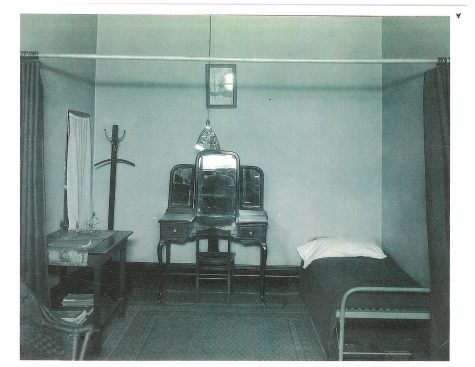
Student Health has called its facility on Westlawn home since 1998. Westlawn Student Health offers full clinical services, including allergy immunotherapy, family-medicine services, LGBTQ services, gynecology, immunizations, lab testing, psychiatry, and a nurse help line available to all UI students.
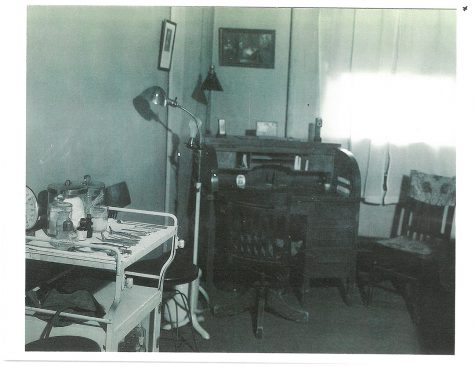
Natvig said that Student Health has administered care to an estimated 3 million students since opening its doors 100 years ago.
Lisa James, the assistant director of quality improvement and strategic communications of Student Health, said Student Health has shifted from not only providing general health care to UI students, but toward being a comprehensive well-being and care facility, at the mark of its centennial.
“Well-being enables great learning, and that’s what Student Health provides,” James said.
As previously reported in The Daily Iowan, Student Health and Wellness announced a formal split to two separate entities — Student Health and Student Wellness — in May in an effort to offer more quality patient care.
At 11 a.m. to 1 p.m. Tuesday and Wednesday, Student Health officials and physicians will have a table on T. Anne Cleary Walkway to pass out cookies and other treats, as well as information on Student Health.
James said they will also pass out flu-prevention kits to help educate students on how to stay safe and healthy in the upcoming flu season.
Becca Larkin, a member of Student Life Marketing and Design, said Student Health is committed to helping students beyond their four years as a Hawkeye.
“We want to show our care for the university and give back by having our doctors hand out treats to thank the students for using our services for 100 years,” Larkin said.



